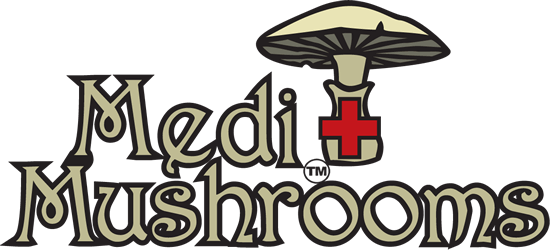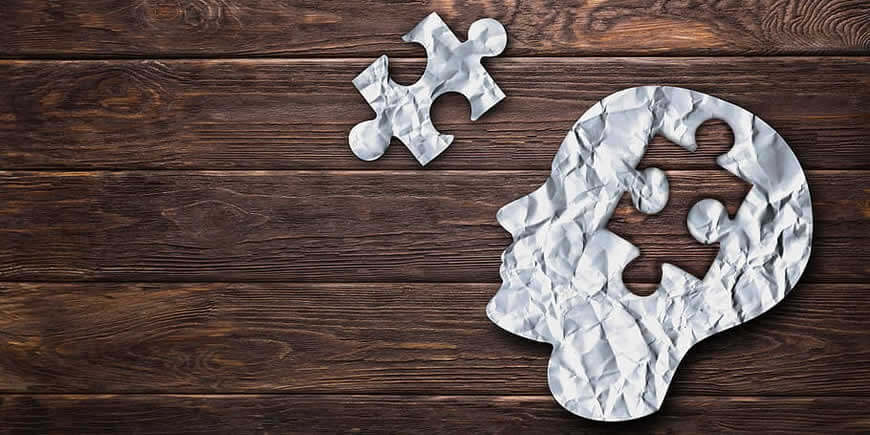*** IMPORTANT SHIPPING & DELIVERY NOTICE ***
Some international couriers continue to experience shipping delays.
We recommend you buy early and in bulk to avoid the impact of these delays.For 25+ years, we've been supporting a Healthy Body, Strong Spirit and Clear Mind!
Providing superior quality medicinal mushroom supplements
to customers in 74 countries around the world.Buy More & SAVE Big
- Tap for Navigation
- Dietary Supplements ▼
- » Dr Alla's Cordyceps
- » Dr Alla's Lion's Mane
- » Dr Alla's Maitake
- » Dr Alla's Reishi
- » Dr Alla's Shiitake
- » Testimonials
- Symptoms Chart
- Get Advice ▼
- » FAQ
- » Health Consultations
- Dr Alla's Insights ▼
- » Medical Conditions
- » Mushroom Properties
- » Research Info ►
- » » Medical Quotes
- » » Reference Works
- » » Mushrooms - Why Special?
- About ▼
- » Dr Alla's Story
- » Testimonials
- » Trade Enquiries
- » Contact
- Customer Info ▼
- » Access My Account
- » Track My Order
- Navigation
- Dietary Supplements ▼
- » Dr Alla's Cordyceps
- » Dr Alla's Lion's Mane
- » Dr Alla's Maitake
- » Dr Alla's Reishi
- » Dr Alla's Shiitake
- » Testimonials
- Symptoms Chart
- Get Advice ▼
- » FAQ
- » Health Consultations
- Dr Alla's Insights ▼
- » Medical Conditions
- » Mushroom Properties
- » Research Info ►
- » » Medical Quotes
- » » Reference Works
- » » Mushrooms - Why Special?
- About ▼
- » Dr Alla's Story
- » Testimonials
- » Trade Enquiries
- » Contact
- Customer Info ▼
- » Access My Account
- » Track My Order
Dementia is not a clean-cut specific disease. It is a general term that covers a set of related symptoms that are associated with a decline in thinking and analysing ability and such brain functions as memory, understanding and judgement.
These symptoms affect a broad spectrum of social impairment that interferes with daily functions.
Some types of dementia are reversible with medication and some are permanent.
What are the types and symptoms of dementia?
Behavioural:
- Irritability,
- Personality changes,
- Restlessness,
- Lack of restraint, wandering and getting lost
Cognitive:
- Memory loss,
- Mental decline,
- Confusion in time and hours,
- Disorientation,
- Inability to speak or understand language,
- Making things up,
- Paraphasia (speech disturbance and confusion)
- Mental confusion,
- Inability to recognise common things
Mood:
- Anxiety
- Loneliness
- Mood swings
- Nervousness
Psychological:
- Sleep disorder
- Depression
- Hallucination
- Paranoia
Muscular:
- Inability to combine muscle movements
- Unsteady walking
- Falling
Dementia differs from one person to another. No two patients are ever the same and the progression is at a different rate for each individual.
For some, the dementia progresses very quickly combining a few symptoms within short period of time, while in other cases the symptoms can be manifesting themselves very slowly and over a very long period of time.
What are the stages of dementia?
Stage 1. Mostly normal mental function and there are no noticeable symptoms displayed.
Stage 2. Very mild symptoms of mental decline, for example:
- Forgetting where you left the car keys
- Forgetting where your reading glasses are
- Forgetting if you brushed your teeth today
- Forgetting if you have eaten today and / or what you had for a meal
- Forgetting everyday type of phrases
This stage might seam annoying but there is generally no cause for concern.
Stage 3. Mild mental decline
- Memory loss
- Forgetfulness
- Verbal repetition
- Difficulty in concentration
- Organisational skills become poor and inadequate
- Trouble finding solutions to different problems
- Difficulty in dealing with complex tasks
- Impaired work performance
- Difficulty driving
This stage becomes noticeable to co-workers, family and friends, but does not affect too much negatively the lifestyle and the daily routine.
Stage 4. Moderate mental decline
- Trouble performing routine tasks
- Social withdrawal
- Non-responsive
- Moodiness
- Denial
At this stage the above symptoms in combination with the symptoms from the previous stages show that the person’s ability to maintain a healthy normal lifestyle is seriously impaired. Medical attention is required.
Stage 5. Moderately severe mental decline
- Serious forgetfulness related to everything, not just the routine things
- Memory loss of personal details
- Inability to recollect current events
- Confusion about daily events
- Inability to think clearly
- Inability to express the thoughts
- Drastically reduced problem solving ability
At this stage the person is not capable to take care of himself and be safe. A home careviver or a special care facility is required.
Stage 6. Severe mental decline
- Inability to perform basic daily routines such as independently eating or using the bathroom
- Difficulty sleeping
- Anxiety
- Difficulty in recognizing the family members and friends
- Paranoia
- Delusion
At this stage the person requires constant help of a professional caregiver and at a specialized health facility.
Stage 7. Very severe mental decline
- Total inability to care for him/herself
- Severe movement impairment including inability to walk
- Severe communication impairment including inability to speak
At this stage the person is under constant supervised assistance of a professional caregiver and at a specialized health facility.
How to prevent the onset of dementia?
We don’t fully understand yet what causes the onset of dementia, therefore it is hard to prevent it.
Here are things that we can do to lower the risk of developing dementia:
- Do not smoke.
- Maintain healthy weight.
- Stay physically active.
- Ensure healthy food, include vegies, fruit, berries.
- Consume alcohol in moderation.
- Manage health problems including diabetes, high blood pressure, and high cholesterol.
- Stay mentally alert by learning new hobbies
- Engage in reading
- Solve crossword puzzles
- Build puzzles
- Learn to play sudoku or other games that force your brain to think and analyze
- Stimulate the brain function by engaging in any other type of activities that require thinking and working things out
- Stay involved socially by getting family and friends together, attending community activities, church, or support groups.
- Take dietary supplements, including Omega3.
Recommended Medicinal Mushrooms:
Lion's Mane is regarded as "Brain Power Booster".
Here are the main benefits of this amazing medicinal mushroom, Lion's Mane:
- Stimulates the brain function.
- Enhances memory and concentration.
- Enables the stimulation of nerve growth factor.
- Strengthens the nervous system to endure stress, exhaustion, strain and lack of energy.
- Speeds up overall recovery after illness or medical treatment.
- Delays the aging process.
- Contains anti-oxidant properties.
The most outstanding and most valuable property of Lion's Mane mushroom is its ability to stimulate the synthesis of Nerve Growth Factor (NGF) and promote the process of myelination.
Increased production of NGF may enhance cognitive function and help to slow down the onset of dementia, brain dysfunction associated with Alzheimer's disease and various other neurological conditions.
Nerve Growth Factor (NGF) is effective in prevention of nervousness, forgetfulness and early aging process.
For best results, it is recommended to take the following combination of medicinal mushrooms:
Depending on the stage of the dementia I will recommend the correct dosages.
Please do not hesitate to contact me and discuss your health issues or any of our MediMushrooms products.
I am here to help,
Dr Alla.
CONTACT INFO
021 227 9922 (NZ)
+64 21 227 9922sales@medimushrooms.co.nz
Skype: alla.kiroshka
We ship globally to 74 countries and locally to all regions of New Zealand. Local shipping destinations include Auckland, Bay of Plenty, Gisborne, Hawke's Bay, Manawatu-Whanganui, Northland, Taranaki, Waikato, and Wellington on the North Island. As well as Canterbury, Marlborough, Nelson, Otago, Southland, Tasman, and West Coast on the South Island.

Top NZ cities and towns we ship to include Alexandra, Arrowtown, Ashburton, Auckland City, Blenheim, Bluff, Cambridge, Christchurch, Cromwell, Dannevirke, Dargaville, Dunedin, Eltham, Feilding, Gisborne, Gore, Greymouth, Hamilton, Hastings, Havelock North, Hawera, Hibiscus Coast, Hokitika, Huntly, Invercargill, Kaikoura, Kaitaia, Kāpiti Coast, Katikati, Kawerau, Kerikeri, Levin, Lower Hutt, Manukau City, Marton, Masterton, Matamata, Morrinsville, Motueka, Napier, Nelson City, New Plymouth, Ngaruawahia, North Shore, Oamaru, Otaki, Palmerston North, Paraparaumu, Picton, Porirua, Queenstown, Rolleston, Rotorua, Stratford, Taupo, Tauranga, Te Awamutu, Te Puke, Thames, Timaru, Tokoroa, Upper Hutt, Waihi, Wanaka, Warkworth, Wellington City, Wellsford, Westport, Whakatane, Whanganui, Whangarei, Whitianga.
Copyright © 2004 - 2025 MediMushrooms International Ltd
DISCLAIMER: The information on this website has been researched, reviewed and presented with all due care.
Nevertheless, the content is provided for general education and information only and should not be relied upon in making,
or refraining from making, any decision. It is NOT intended to replace medical advice from a healthcare professional.
All users are urged to seek advice from a qualified healthcare professional for diagnosis, treatment and answers to their medical questions.
Use products as directed. If symptoms persist, please see your healthcare professional.Specific results expressed herein are not typical. Individual results will vary.


